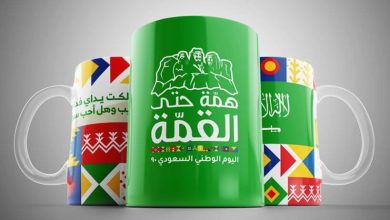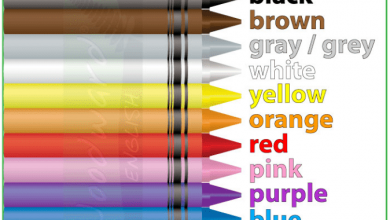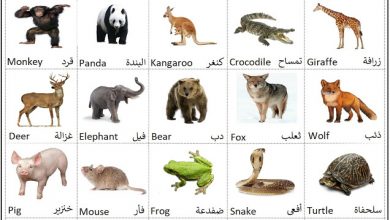فعل الكينونة Verb to be

|
الماضي Past
|
المضارع Present
|
الضمير Pronoun
|
|
he
she it الاسماء المفردة |
||
|
we
you they الاسماء الجمع |
– التصريف الثالث لفعل (be) هو been لجميع الضمائر.
Affirmative الاثبات
Subject (S)+ Verb to be+ Complement (C)
الفاعل+ فعل يكون+ تكملة الجملة
– I am John. انا جون
– He was an accountant. كان محاسب
– She is a smart. هي ذكية
– It is a good day. انه يوم جيد
– They were at home. كانوا في المنزل
– We are engineers . نحن مهندسين
– You were an athlete. كنت رياضي
– I am John. انا جون
– He was an accountant. كان محاسب
– She is a smart. هي ذكية
– It is a good day. انه يوم جيد
– They were at home. كانوا في المنزل
– We are engineers . نحن مهندسين
– You were an athlete. كنت رياضي
– Negative النفي
فقط نضيف (not) بعد Verb to be.
Subject+ Verb to be + not+ Complement
– Tom is not rich. توم ليس غني
– Barbara and Carla (They) are not students.
.باربرا و كارلا ليسوا طلاب
– Yes/ No questions and short answers أسئلة نعم/ لا والأجوبة القصيرة
ملاحظة: في حالة السؤال فإن الفعل يسبق الفاعل.
– صيغة السؤال تكون على هذا النحو: Verb to be+ Subject+ Complement
Was David an architect?
هل كان ديفد مهندس معماري؟
هل كان ديفد مهندس معماري؟
ويكون الجواب على النحو التالي:
Yes/ No+ Subject+ Verb to be
– Yes, he was.
Or
– No, he wasn’t.
انظر ايضا للمثال أدناه:
He is a doctor. (Affirmative)
He isn’t a doctor. (Negative)
Is he a doctor? (Yes/No question)
Yes he is.
No he isn’t.
Information questions اسئلة الحصول على معلومات
1- Questions with What
What+ Verb to be+ Possessive adjective (صفة ملكية)+ Complement
What is his name? ماهو اسمه
His name is Ali. اسمه علي
What is her email address? ما هو عنوان بريدها الالكتروني
Her email address is [email protected] عنوان بريدها الالكتروني هو
2- Questions with Where
Where+ Verb to be+ Complement
Where is the bank? أين يقع البنك
Where is the restaurant? أين يقع المطعم
– يستخدم فعل (be) كفعل رئيسي (main verb) او فعل مساعد (auxiliary verb).
– اذا استخدم كفعل رئيسي، ففي هذه الحالة يتبع بصفة او اسم او جنسية او عمر … الخ.
Billy is strong.
.بيلي قوي
is: فعل رئيسي
strong: صفة
.بيلي قوي
is: فعل رئيسي
strong: صفة
– اما اذا استخدم كفعل مساعد، فعندها يتبعه الفعل الرئيسي.
He is swimming. هو يسبح
is: فعل مساعد , swimming: فعل رئيسي
is: فعل مساعد , swimming: فعل رئيسي
They were listening to music. كانوا يستمعون الى الموسيقي
were: فعل مساعد , listening: فعل رئيسي
were: فعل مساعد , listening: فعل رئيسي
– يستخدم Verb to be للتعبير عن الاشياء ووصفها مثل:
– الاسماء: My name is Thomas. اسمي توماس
– العمر: I am 24 years old. انا عمري 24 سنة
– الدين: I am a Muslim. انا مسلم
– الجنسية: He is a Jordanian. هو اردني
– الزواج والعزوبية: She is married. هي متزوجة
– الوظيفة والمهنة: Barbara is a flight attendant. باربرا مضيفة طيران
– الوزن والطول: My weight is 80 kilogram. وزني هو 80 كيلوغرام
– اللون: The car is blue. السيارة زرقاء
– المشاعر: I am happy. انا سعيد
– الحجم: Richard is a huge. ريتشارد ضخم
– المواقع والاماكن:
The center is near. المركز قريب
They are standing behind you. (انهم يقفون خلفك (يقفون خلفك
– الجودة، الصفة، الحالة: The honey is delicious. العسل لذيذ
– (السلوك (ما يفعله الناس: We are swimming. نحن نسبح
اختصارات مهمة
I am: I’m he is: he’s she is: she’s
it is: it’s you are: you’re we are: we’re
they are: they’re is not: isn’t are not: aren’t
was not: wasn’t were not: weren’t
what is: what’s where is: where’s
Examples امثلة:
I’m John. Billy’s strong. He’s swimming.
She’s a smart. It’s a good day. We’re engineers.
You’re happy. They’re reading. Tom isn’t rich.
what is: what’s where is: where’s
Examples امثلة:
I’m John. Billy’s strong. He’s swimming.
She’s a smart. It’s a good day. We’re engineers.
You’re happy. They’re reading. Tom isn’t rich.
He wasn’t an accountant.
They weren’t at home.
Barbara and Carla aren’t students.
What’s your name?
Where’s the bank?



